It’s not news that Zelda: Tears of the Kingdom is a huge game. The map is expansive, there’s a world in the sky over the main one and the bosses dwarf you in a way that makes you feel microscopic. While TotK has all these things working towards it feeling like an unapproachable beast, it still manages to break itself down in a way that’s accessible to many different types of players.
Traveling between locations in a game as large as TotK is one of the most important things to refine because it can get grating pretty quickly. Sure, the scenery changes as you go from region to region, but traveling can still become a chore if the game isn’t designed in a way that keeps the world fresh. TotK manages to keep that period of traveling – of which there is plenty – enjoyable and stimulating.
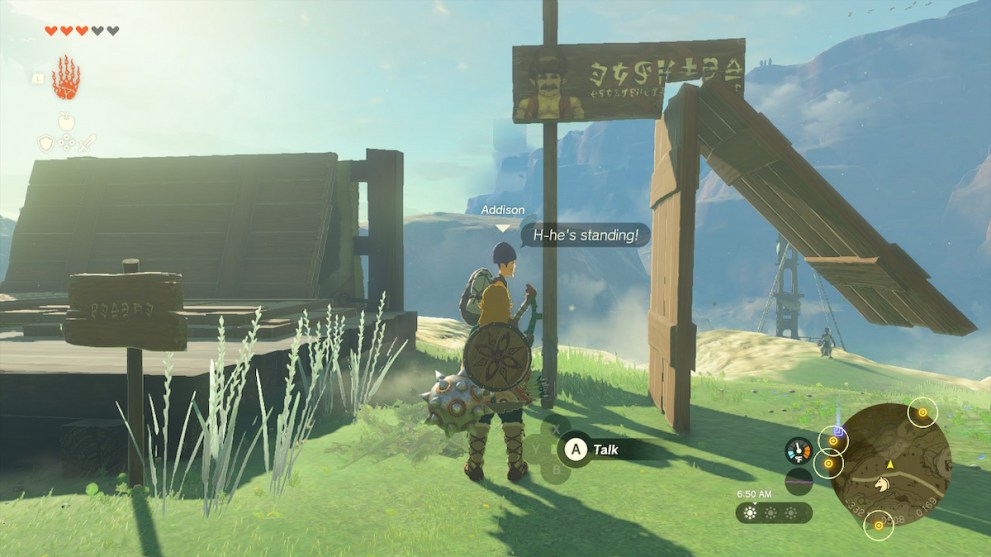
Take simply just going from Lookout Landing to any other region. If you zoom the map out and see how far you have to travel, it can be incredibly daunting and maybe even discouraging before you begin going anywhere. Once you start traveling, you’ll notice where Nintendo dotted the landscape with ways to keep you engaged. You’ll come across characters like Addison who just need a little support, or small side quests that take your attention away from how far you’ve just ridden your horse.
These side quests are structured in a way where the quest pushes you farther along the map in the direction you need to go, but without you even realizing. It’s accomplishing the task of traveling from place to place, but the game is constantly rewarding you with upgrades so you can tangibly feel the progress you’ve made. This does come with a flip-side though, because while you have the freedom to find the things you need to find to complete your quest, you might just never encounter entire aspects of the game like Fairies or Geoglyphs.
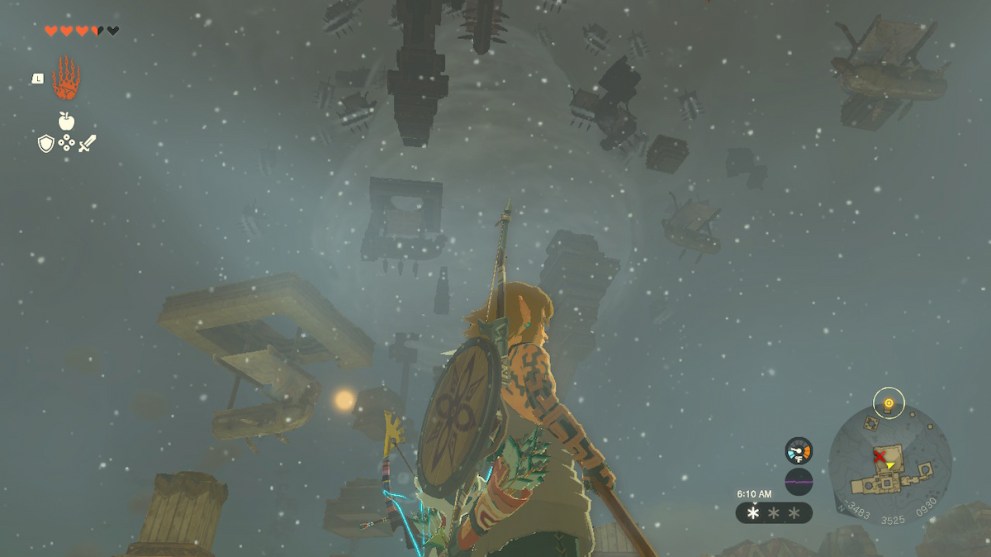
On the other hand, something you’re almost guaranteed to find are the Shrines, which serve as landmarks on the map that incentivize players to seek them out. The Lights of Blessing are some phenomenal incentive themselves, but with that map being the size it is, sometimes the real reward feels like it’s the fast-travel point. You can spot the Shrines from such a distance that they act like a beacon, ensuring you that there is something over there, and it’s something you’re gonna want.
Even just breaking your travel down from Shrine to Shrine makes the process feel more palatable. Zooming in with your scope and leaving a pin for yourself to check every now and again is one of the first things the game has you do, and it really is a valuable feature. You can set the pin and start off on your way, and they’re often much closer than they look at first, so you might just crest the top of a hill and be right where you want to be.
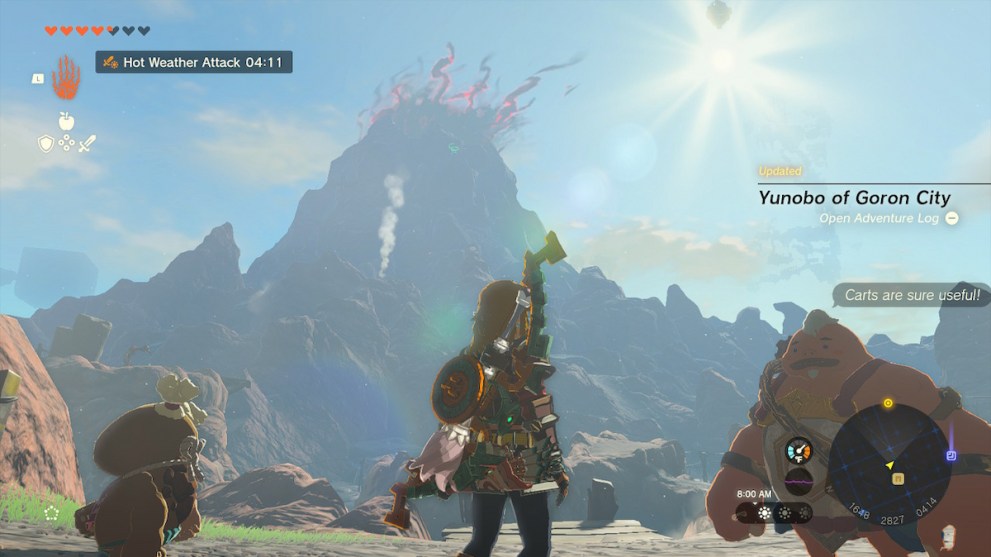
The side quests in TotK are structured in a way that gets you to interact with the environment so deeply that you almost completely lose track of how much you’ve done. This works to take away some of the monotony of running or riding through Hyrule, and sometimes the smallest quests are the ones that completely sneak up on you. I never expected to be told that one of the Skyview Towers wasn’t functioning, and I took that personally. I fixed it, no questions asked, not just because I’m a completionist but because I knew that I was going to thank myself later for having the option to travel there.
When TotK presents you with an objective, be it a boss to fight or a destination to discover, it makes sure you know how small you are compared to what you’re facing. When you have to climb Death Mountain, the camera moves in just the right way to show how far away you are and the sheer size of it. It’s almost threatening, but you know you can make it there because you already made it to Goron City.
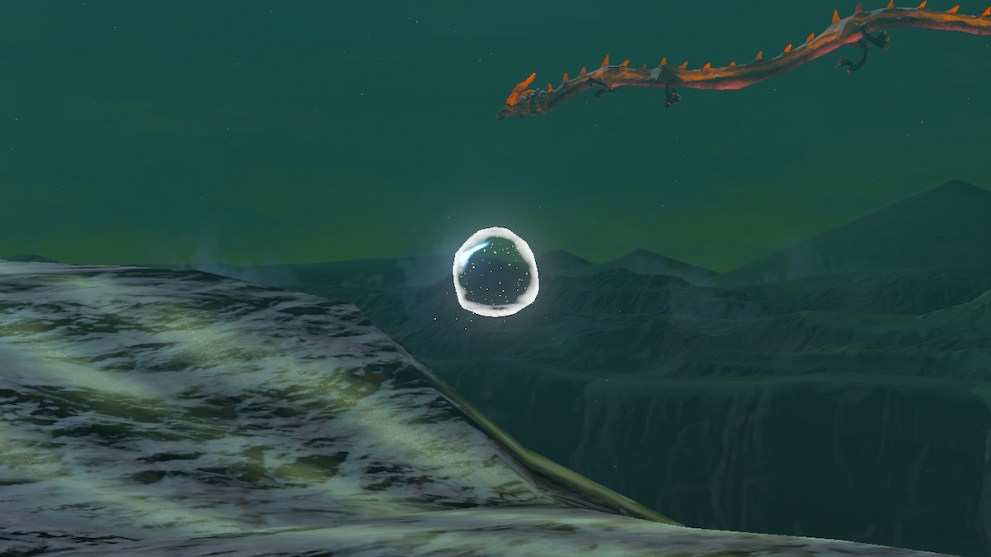
The same goes for bosses; you feel way too small to do anything to go up against them, but that’s intentional. The camera frames the boss just right so that they look as imposing as possible, and you have to remind yourself as to why Link is known as a legendary swordsman. You give it a shot, find their weakness and learn how to take them down, and you remember that your size never mattered in the first place.
Tears of the Kingdom makes size one of the main running themes through the whole game. Characters like the Gorons directly comment on it at times, but they also never hesitate to ask for your help when it benefits them. Your allies might even be more threatened by a boss than you are at first, and when you end up coming out on top, they sound surprised that you managed to do so. The game is all about constantly subverting your expectations and instilling you with that feeling of pride.
While TotK is one of the largest games I’ve approached and tried to conquer, it almost doesn’t feel like it while I’m playing. Each region almost feels like its own game with unique environments, bosses and characters for you to immerse yourself in, except its all cohesive. All it takes is a falling rock to remind you of just how much there is to explore, but no matter how small you feel, remember that Link is capable of much more than he appears.

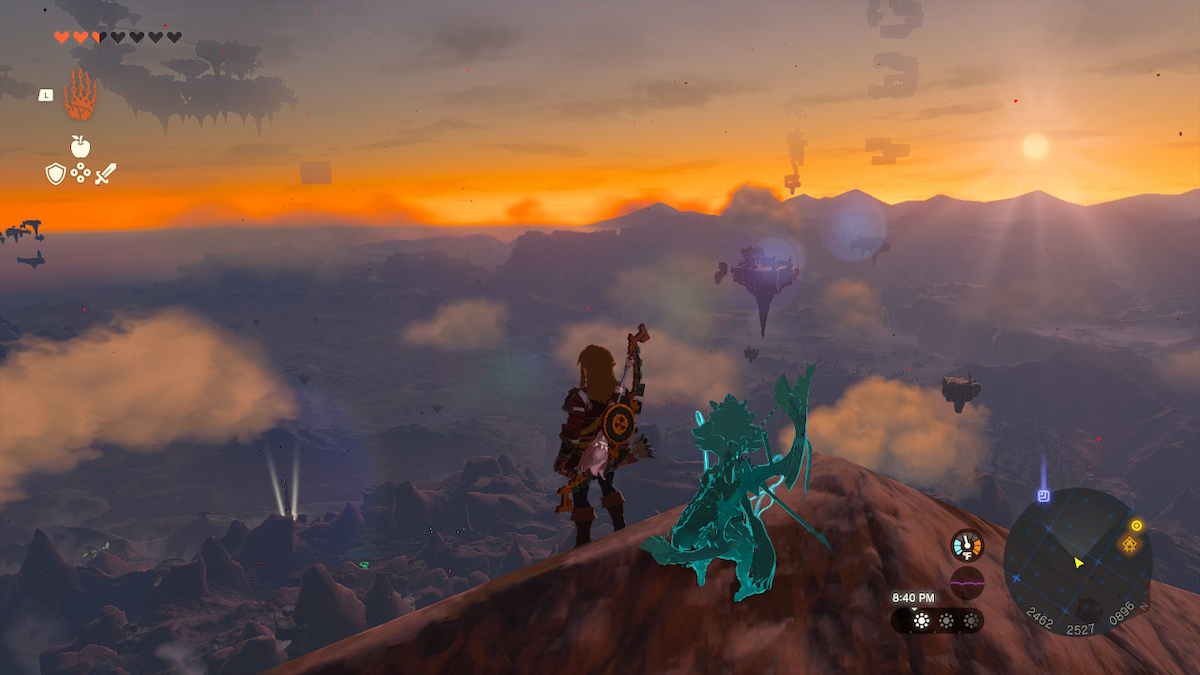












Updated: Jul 6, 2023 08:17 pm